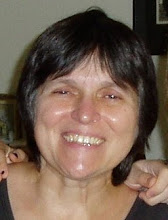For my absent daughter, on Mother’s DayToday, while folding laundry you had left behind, I found myself in your room, puzzled. I opened your drawers and I didn’t know where to put things. Where did you get these socks? Hmm, where does the underwear go? What nice pants – how come I’ve never seen them?
Time was, I knew everything you wore. I picked it out, paid for it, put it on you, washed it in baby laundry soap so it wouldn’t irritate your skin, wrote thank-you notes to those who gave you clothing as a gift. I remember those days; they were not all that long ago.
Now you are 19, away at college, and you’ve just spent three days by your all-alone self in the wilderness. Sure, it wasn’t that far from home, but you had to sleep alone, walk alone, get yourself there and back again, cook, put up your little tent house, and trust to the rangers and the stars. I know you took my car, but how did you get there? How did you grow so far and go so far? I am so glad you did. I am so glad you will come back. You will return and tell me your adventures, your travels, your studies, your thoughts, your problems. I am sorry I missed you after you returned. I had some obligations of my own. I look forward to your news, your life. I gave you life, and there you go, running with it, my runner.
The year my own mother died – your Grandma Zdun – I had my first Mother’s Day alone. Today is not my first Mother’s Day alone in our family, in this generation. Your little brother is still home, and I get to take care of him. You also were away once before, off on another journey, that one to Mexico, to learn another language, find another family. You did both of those tasks so well. You also helped me get ready for many Mother’s Days to come, by leaving the nest. I’m glad you will come back.
The year my own mother died, I wrote a very good piece about mothers and children, about being left alone, about death and life and noticing what is taken for granted. I spent days at my mother’s house; I didn’t recognize her clothes, but I recognized her habits. I didn’t recognize your clothes, but I recognize your habits: the way you fold things, which you have taught me. You are teaching me things. You have always taught me things, from second one of day one, your birthday, when you slid out of my womb and they put you on my chest and said, it’s a girl. My daughter. I’m your mom. You have been leaving me since the day you left the sanctuary I provided in your very earliest days, the womb. Keep going. You’re headed in the right direction.
It’s hard to let you go, though, so I’m glad you will come back. Come back as often as you can, as often as you need. Your dad and I will be here.


